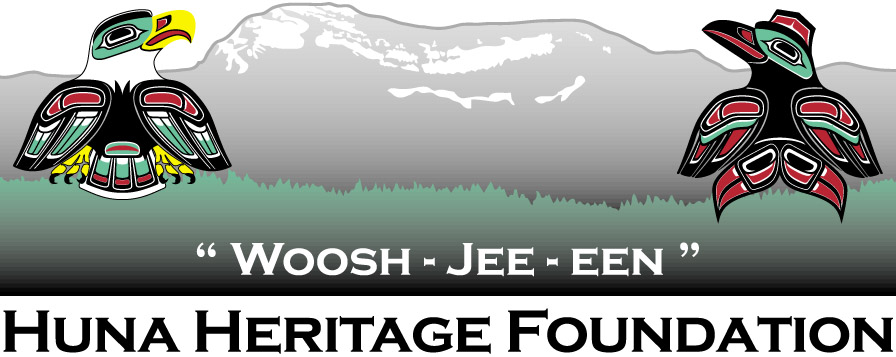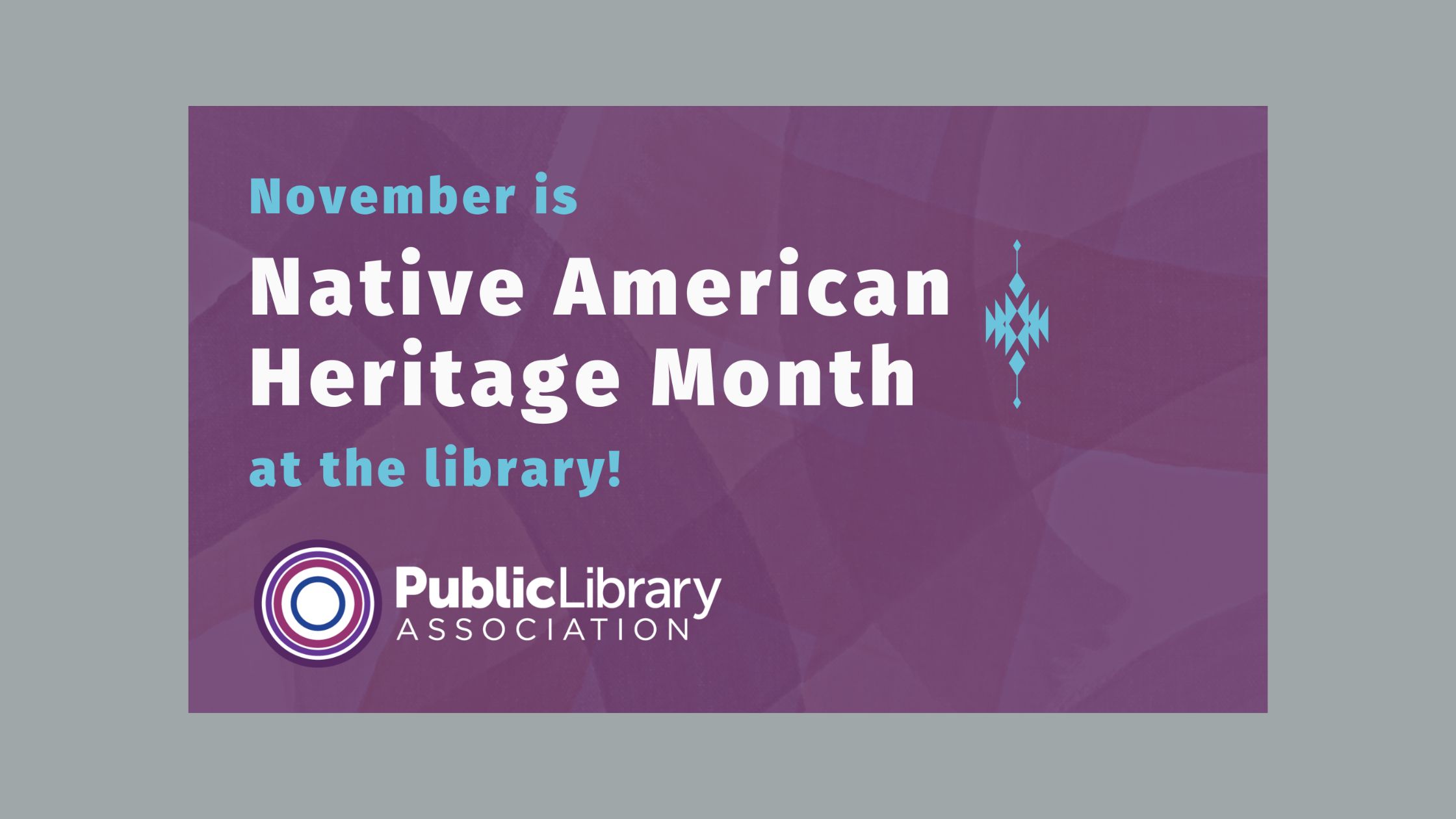 American Indian College Fund: Native American Heritage Month
American Indian College Fund: Native American Heritage Month
November is Native American Heritage Month – an opportunity to not only celebrate who we are and where we come from, but also the future and where we are going. As our friend and ally, we invite you to join us! There has never been a better or more important time to deepen your knowledge of Native issues, to honor the contributions of our people, to confront the darker parts of our past, or to use your voice to amplify ours! So many people are already doing this and in doing so, are helping ensure a future of greater equity for Native people is on the horizon. Read on to discover the many ways you can celebrate more, know more, share more, and do more with and for Native peoples this Native American Heritage Month!
"Labriola Center celebrates Native American Heritage Month with events, exhibit" [Arizona State University]
“Here at the Labriola Center, we celebrate Indigenous peoples every day and every month of the year,” said Alexander Soto (Tohono O’odham), director of the Labriola National American Indian Data Center.
“As an Indigenous library, our staff seeks to enhance the visibility of our community through culturally relevant events, services and resources. NAHM gives us an opportunity to further spotlight what we do for the other eleven months of the year. For us, we feel it is vital to make space and place for indigeneity throughout ASU," Soto said.
 Cyril George Indigenous Knowledge Center at the University of Nebraska Southeast
Cyril George Indigenous Knowledge Center at the University of Nebraska Southeast
The Cyril George Indigenous Knowledge Center is an ongoing project and goal of the UAS Indigenous Studies program, the Egan Library, and the University of Alaska Southeast. Ḵaalḵáawu Cyril George was a Tlingit leader from the Deisheetaan Clan of Angoon, who passed away in 2014.
Proposed by Assistant Professor Lance Twitchell and funded by a Rasmuson Grant and private donations, the Center began with the Cyril George Indigenous Knowledge Collection, bringing together the library's materials about Alaska Native culture, technology, literature, and art, as well topics such as language revitalization and Indigenous peoples of North America and eventually around the world. This guide includes updates from throughout the founding and setup of this collection, and the efforts to expand the collection into a full Center located in the Egan Library.
 Huna Heritage Digital Archives
Huna Heritage Digital Archives
The Tlingit are one of the indigenous cultures of Alaska. Located on the northern tip of Chichagof Island in Southeast Alaska, 40 air miles southwest of Alaska’s capital city of Juneau, Hoonah is the largest Tlingit Native community anywhere in the world and is the principal village for the Xunaa Káawu (Indigenous people of Hoonah). Huna Heritage Foundation was established in 1990 by Huna Totem Corporation as a 501(c)(3) non-profit affiliate to foster and support educational and cultural opportunities for shareholders and descendants.
Indigenous Action (IA/originally Indigenous Action Media) was founded on August 25th, 2001 to provide strategic communications and direct action support for Indigenous community’s sacred lands defense. We are a radical volunteer crew of anti-colonial & anti-capitalist Indigenous media makers, designers, artists, writers & agitators that work together on a project by project basis for liberation for Mother Earth and all her beings. Over the years we’ve organized hundreds of actions, marches, banner drops, workshops, conferences, benefits, and much more.
Our website provides an outlet for critical analysis, alerts, action support, and propaganda. 100% of all proceeds directly support radical Indigenous organizing. We’re not in this for profit or “revolutionary chic” trends… we’re all in for total liberation.
IndigenousAF (IAF Inc.) is a non-profit organization in Nevada that supports community work and projects which strengthen Indigenous cultures, knowledge, and identity through the arts and education. IAF Inc. raises and distributes funding directly for experienced individuals, groups, and sister organizations that help to preserve and extend cultural traditions within our beautifully diverse communities.
Indigenous Peoples Burning Network
The Indigenous Peoples Burning Network (IPBN) is a support network among Native American communities that are revitalizing their traditional fire practices in a contemporary context. Since time immemorial indigenous people have been using refined fire practices to care for landscapes in what is now the U.S. Although most fires today are managed by non-tribal governments, indigenous knowledge-holders are vital partners in advancing forest resilience and hazardous fuel reduction. The IPBN is unique—in its leadership by Native American elders and practitioners, and in its focus on revitalizing traditional fire cultures to help solve today’s fire problems.
Starting in 2015 with a single landscape in the combined ancestral territories of the Yurok, Hoopa and Karuk Tribes of Northern California, the IPBN has grown to include participants from multiple pueblos in New Mexico, land managers from the Leech Lake Band of Ojibwe in Minnesota, and the Klamath Tribes in Oregon. The network is also exploring connections with tribes in North Carolina, Texas and Washington.
National Archives: Native American History
We observe Native American Heritage Month in November to recognize the achievements and contributions of Native Americans. In 1990 President George H. W. Bush approved a joint resolution designating November 1990 “National American Indian Heritage Month.” Similar proclamations, under variants on the name (including “Native American Heritage Month” and “National American Indian and Alaska Native Heritage Month”) have been issued each year since 1994.
 Native America Calling is a live call-in program linking public radio stations, the Internet and listeners together in a thought-provoking national conversation about issues specific to Native communities. Each program engages noted guests and experts with callers throughout the United States and is designed to improve the quality of life for Native Americans. Native America Calling is heard on nearly 90 public, community and tribal radio stations in the United States and in Canada. Our program is a production of Koahnic Broadcast Corporation, a Native-operated media center in Anchorage, Alaska.
Native America Calling is a live call-in program linking public radio stations, the Internet and listeners together in a thought-provoking national conversation about issues specific to Native communities. Each program engages noted guests and experts with callers throughout the United States and is designed to improve the quality of life for Native Americans. Native America Calling is heard on nearly 90 public, community and tribal radio stations in the United States and in Canada. Our program is a production of Koahnic Broadcast Corporation, a Native-operated media center in Anchorage, Alaska.
 Native American Heritage Month at the Library [Public Libraries Online]
Native American Heritage Month at the Library [Public Libraries Online]
November is Native American Heritage Month (also referred to as Native American Indian Heritage Month and National American Indian and Alaska Native Heritage Month). Public libraries across the U.S. are celebrating with curated booklists, book discussions, film screenings, language, cooking, and art classes, and many more programs throughout the month.

 Native Truths: Our Voices, Our Stories [Chicago Field Museum]
Native Truths: Our Voices, Our Stories [Chicago Field Museum]
In Native Truths: Our Voices, Our Stories, we invite you to connect with diverse Native stories and the individuals who share them. Dive deeply into current issues, like threats to Native land and the rights of tribal nations to govern themselves. Celebrate the thriving, modern cultures of today’s Native communities. Hear from Native American and Indigenous people as they tell their own stories—through words, music, dance, and art.
Understand the historical significance of items in the Field’s collection, like traditional regalia and pottery. Immerse yourself in works by contemporary Native artists, including Haudenosaunee (Iroquois) raised beadwork from Karen Ann Hoffman of the Oneida Nation of Wisconsin and flute music from Frank Waln of the Sicangu Lakota.
Nuwu Art Gallery and Community Center
Fawn Douglas conceived the Nuwu Art Collective, which sprung from the group of talented artists who have spaces at the Nuwu Art Studios. These Las Vegas creatives all value community building and creating safe spaces for youth and families to explore their cultures, as they use their unique skills to decolonize through the arts and education.
Cultural revitalization and exploration are central themes for those who gather at Nuwu Art, as artists and guests at the studios draw, paint, sculpt, weave, and perform stories inspired by Native American (Paiute, etc.), Indigenous Latin American (Mexica, etc.), African American, and various traditions.
Sovereign Bodies Institute (SBI) builds on Indigenous traditions of data gathering and knowledge transfer to create, disseminate, and put into action research on gender and sexual violence against Indigenous people. SBI is committed to:
conducting, supporting, and mobilizing culturally-informed and community-engaged research on gender and sexual violence against Indigenous people
uplifting Indigenous researchers, knowledge keepers, and data visualists in their work to research and disseminate data on gender and sexual violence against Indigenous people
empowering Indigenous communities and nations to continue their work to end gender and sexual violence against Indigenous people, through data-driven partnerships that enhance research efforts, develop best practices, and transform data to action to protect and heal their peoples.
Native Land Digital strives to create and foster conversations about the history of colonialism, Indigenous ways of knowing, and settler-Indigenous relations, through educational resources such as our map and Territory Acknowledgement Guide. We strive to go beyond old ways of talking about Indigenous people and to develop a platform where Indigenous communities can represent themselves and their histories on their own terms. In doing so, Native Land Digital creates spaces where non-Indigenous people can be invited and challenged to learn more about the lands they inhabit, the history of those lands, and how to actively be part of a better future going forward together.
